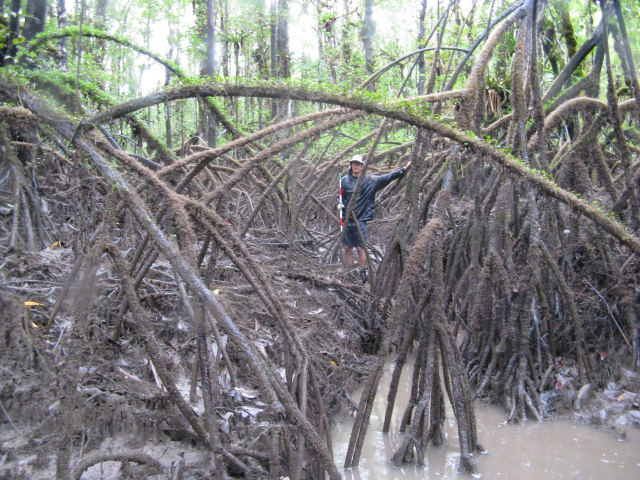Aims of the project
The MAKOPA project is aimed at promoting the scientific exchange between Colombian (Universidad del Valle) and German (Leibniz Centre for Tropical Marine Research - ZMT) researchers working with mangrove ecosystems. We are especially interested in understanding the role that mangroves play in sustaining fisheries productivity in the Colombian Pacific coast, and also in understanding how social-ecological systems in mangroves function in Colombia.
MAKOPA is also trying to support the Colombian Network of Mangroves and Estuaries (SEMANGLARES), which is an effort from various Colombian and international institutions to bring together researchers working on different aspects of mangrove ecosystems.
First results
The cooperation between ZMT and the Colombian institutions has been able to synthesize biological and ecological information on mangrove ecosystems into a trophic model of a representative system of the Colombian Pacific coast.
At the moment, the different members of the project are compiling a historical database on mangrove research done in Colombia since 1900. This analysis will help prioritizing research activities by the SEMANGLARES Network.
Project Partner |
|---|
|
INCIMAR, Universidad del Valle, Cali, Kolumbien Universidad Nacional, Bogotá, Kolumbien |





